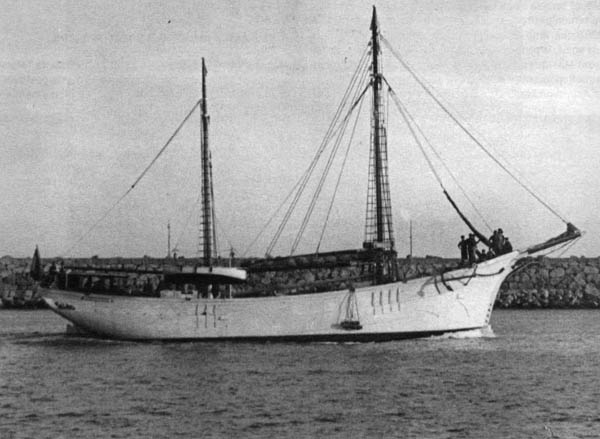
Masiques (1890-2005): an outline of the company’s history
(Enric Garcia Domingo. Article published in the journal Drassana, No 13, Museu Marítim de Barcelona 2005)
In recent years, company history has become widely accepted as an instrument for understanding not only economic history, but also as a means of approaching the past from a new perspective. The history of the maritime company is a relatively new field in our country and excellent works have recently been published which indicate the path to be followed. But the lack of complete company records - along with other circumstances - make it difficult to get a full, reliable picture of the companies which have played a key role in recent maritime history. In order to do its bit, the Museo Marítimo de Barcelona began a line of investigation into the Catalan merchant navy of the 19th and 20th centuries, with the aim of bettering our understanding of this so recent yet so little-known past.

Motor-sail coaster Asunción de las Peñas
This article is merely a quick outline of one of those companies, the house of Masiques, one of whose distinguishing features, among others, is that it has endured through the years. From recollections of the history of this company and of its key players, it is possible to form an idea of the nature of the entrepreneurial world in the Port of Barcelona for over one hundred years. It can also serve as a starting point for analysing companies’ strategies for adapting to business opportunities and to the situation at any given moment without ever fully losing the nature of a traditional family business.

Motor-vessel coaster Conde de Fígols
The early years of this business venture are relatively unknown and are also vague. The driving force of this first era, of the company’s foundation and rapid consolidation, was José Maria Masiques Tasis (1859-1930), a native of Reus who set up as a customs agent in Barcelona in 1890 and who, in time, also went into the business of shipping agent with small sailing vessels transporting the typical goods always found in this small-scale coastal shipping: cement, carob, tow, ceramic products, etc. We know very little about this period and it seems that Masiques was just another player in the sector as a whole. The head office of the house was established at a symbolic location: No 10 Paseo de Isabel II, in premises which were occupied until October 2004, by which time they had become inadequate and inappropriate for current needs. In 1917, José Maria’s son Miguel, who was born in Barcelona, joined the house. He had to enter the business at an early age, due, it seems, to a backlog of work in the company at a time which coincided with the Great War, something which was good for business in general and very good for the maritime sector.




